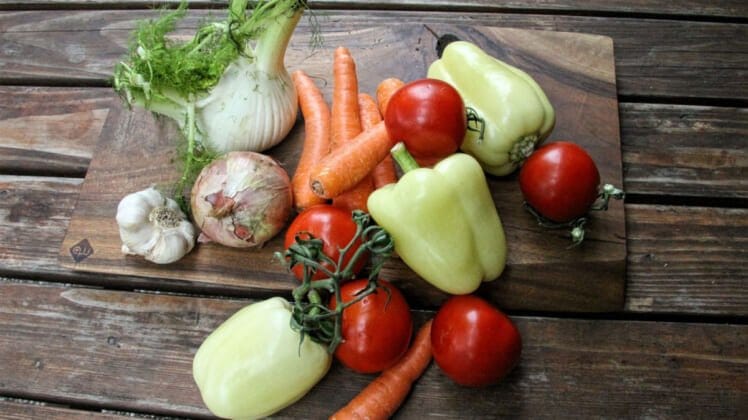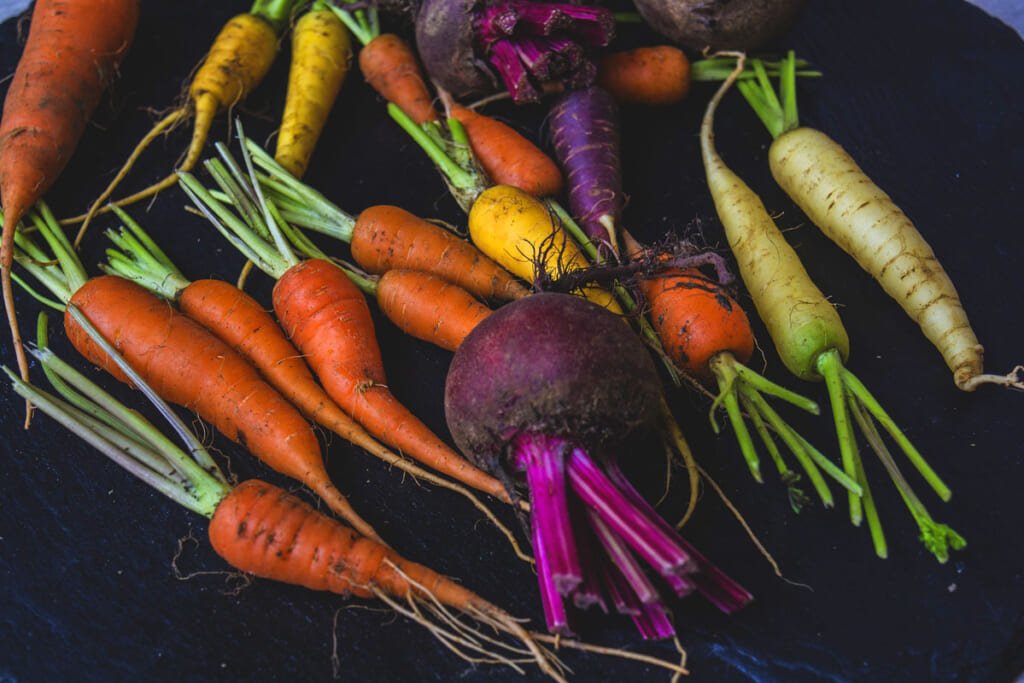
When shopping for food at your local grocery store, you’re likely to come across a lot of labels. One that might stand out to you is “organic,” especially since it tends to come with a higher price tag than its conventional counterparts.
This label is an actual certification that is regulated by the National Organic Program (NOP) and a citizen board, the National Organic Standards Board, both of which are overseen by the U.S. Department of Agriculture’s (USDA) Agricultural Marketing Service.
What does it mean if something is organic?
The term “organic” indicates that a certain food or a product is grown and processed without the use of toxic or synthetic pesticides and fertilizers, genetic engineering, antibiotics, synthetic growth hormones, artificial flavors, colors, preservatives, sewage sludge, and irradiation, according to the USDA. It’s worth noting, however, that organic does not mean pesticide-free, but rather that the pesticides used on food cannot be toxic or synthetic and are instead derived from natural sources.
As a result of these regulations, any meat that is certified organic must come from animals that are raised with concern for animal welfare, raised in clean living conditions that limit stress, are not fed harmful substances, and are properly housed and managed, explains Christen Cupples Cooper, EdD, RDN, assistant professor and founding director of the Nutrition and Dietetics Program at the College of Health Professions at Pace University.
Also Read: 6 Nutritionist Tips for Wasting Less Food (and Saving More Money)
When referring to a product that is not food-related, such as a beauty product, all of the ingredients that go into that product must be made of naturally derived, farmed, or raised ingredients:
“In order to sell organic products online anywhere in the United States, and claim beauty or personal care products are organic, use the word organic or feature a seal on the front of the packaging, the National Organic Program requires the product to have at least 70 percent organic content (excluding water),” says Canada-based naturopathic doctor Sarah Connors, N.D.
The organic labeling of these products, however, can be a little hazy. Remember that just because it says it’s organic, doesn’t mean that it’s 100 percent organic the way a food item would have to be.
Is organic really better for you?
You’ve probably read or been told that organic is better for you and may have questions as to whether or not this is really true. Unfortunately, this is a bit of a controversial issue in the world of nutrition and dietetics, as well as among the health-conscious public, notes Cooper. The opinion differs slightly depending on if you’re referring to fruits, vegetables, meats, dairy, or eggs.
When it comes to fruits and veggies, it’s a good idea to follow the Dirty Dozen and Clean 15 lists released by the Environmental Working Group, a consumer information organization that researches and tests the healthfulness of food and personal care products.
Their Dirty Dozen list indicates which fruits and vegetables are the most likely to contain pesticides that are considered harmful to humans, so they recommend opting for organic for this list of items. The Clean 15, on the other hand, indicates the fruits and vegetables that are more likely to be safe in conventional (non-organic) forms.
Also Read: 6 Things to Know About Plant-Based Meat
In terms of meat and poultry, buying organic will get you meat that is free of potentially harmful growth hormones, antibiotics, or other substances given to animals to either increase or exaggerate their growth or as a means to prevent disease between animals kept in close quarters, explains Cooper. “Organic meat is grass-fed, making it more nutritious, and it is also free-range, meaning that the animals were raised with the ability to roam freely rather than being confined to small units,” she says. “Eggs are a product that I most always buy organic or at least free-range versions.”
When you’re purchasing junk foods, like cookies or potato chips, for example, there’s no need to opt for organic should you come across a product labeled as such. In fact, there are no data to support that these products are any better for you than conventional types.
Tips to know when to go organic or conventional

If you’re ever unsure of whether or not to buy a product organic or conventional, follow these guidelines.
Consider products or food you use or eat most often
If there’s a certain food or product that you use most often, opting for organic may be a good idea, notes Toronto-based naturopathic doctor Olivia Rose, N.D. “For example, if you eat apples every day, make the switch to organic apples,” she says. “Apples also tend to be one of the most heavily sprayed crops, so it may be well worth your while.”
1. Follow the Dirty Dozen and Clean 15 lists
Most of the time, organic products are more expensive than conventional produce, so it may help you save by following the EWG’s Dirty Dozen and Clean 15 lists. This way, you’re spending more on the product that may be harmful to your health and saving on the product that is safe to consume in its conventional form. “If you prioritize organic purchases around this list, you eliminate a huge percentage of pesticide exposure with just this list alone,” adds Dr. Connors.
Also Read: 10 Foods You Have To Try From Around The World
2. If you can’t afford organic, don’t skip out on the produce altogether
Fruits and veggies come with a slew of health benefits, even the conventional varieties, including a reduced risk of heart disease, type 2 diabetes, and even some cancers, per the Centers for Disease Control and Prevention (CDC). “If organic versions of produce are much more expensive than conventional, choose conventional,” says Cooper. “As organic produce becomes more common, the gap between organic and conventional seems to be closing.”
3. Choose local and in-season
Produce grown locally is often organic or almost organic even if they’re not labeled as such. “Local farmers are more likely to invest in their communities and their customers’ health by using safe practices to protect their crops and livestock,” says Cooper. “If you’re unsure, ask the grocer or the farmer if you’re at a farmer’s market how their food is raised to prevent pest damage.”
